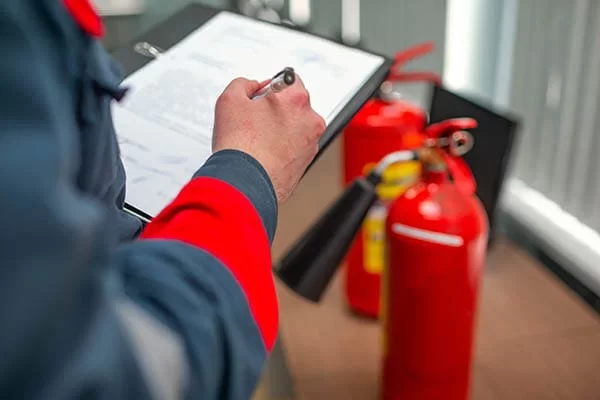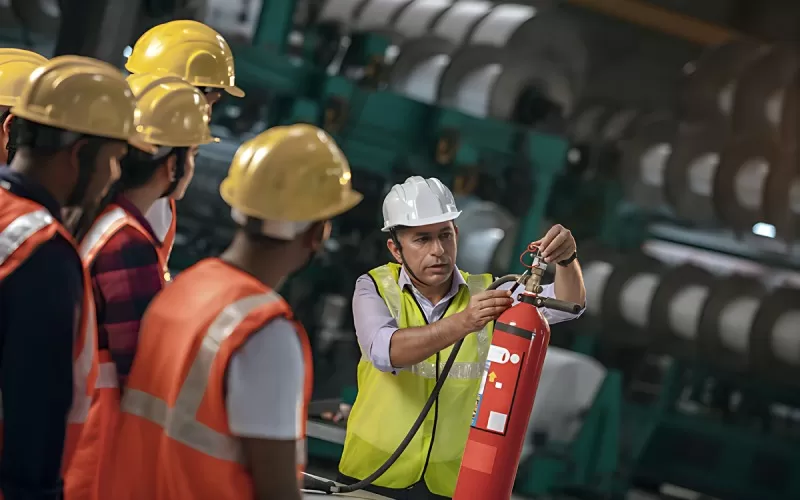Fire safety is a critical aspect of building management and is essential for the protection of lives and property. From residential homes to commercial establishments and industrial facilities, the implementation of effective fire safety measures is crucial to mitigate the risks associated with fire incidents. In this blog post, we will explore the importance of fire safety, key components of a robust fire safety system, and the role of professional fire safety services in safeguarding lives and property.
Understanding the Importance of Fire Safety:
Fire incidents can have devastating consequences, leading to injuries, loss of life, and extensive damage to property. Fire safety measures are designed to prevent fires, detect them early, and provide timely evacuation and suppression. By prioritizing fire safety, individuals and organizations can create a safer environment, reduce risks, and minimize the impact of fire incidents.

Key Components of a Robust Fire Safety System:
a) Fire Detection Systems: Early detection is crucial for prompt response and evacuation. Smoke detectors, heat detectors, and flame detectors are essential components of a fire detection system, providing early warnings when signs of fire are detected.
b) Fire Suppression Systems: Fire suppression systems, such as fire sprinklers, fire hydrant systems, and gas suppression systems, are designed to control and extinguish fires. These systems play a vital role in containing fires and preventing their spread, minimizing damage to property.
c) Emergency Evacuation Planning: An effective emergency evacuation plan ensures the safe and orderly evacuation of occupants during a fire incident. Clear evacuation routes, well-marked exit signs, and regular drills are essential elements of a robust evacuation plan.
d) Fire Safety Training: Educating individuals on fire safety practices, including proper use of fire extinguishers, evacuation procedures, and general fire prevention measures, is crucial. Fire safety training equips individuals with the knowledge and skills necessary to respond appropriately in case of a fire emergency.
The Role of Professional Fire Safety Services:
Professional fire safety services play a vital role in ensuring that fire safety measures are implemented effectively. These services include:
Fire risk assessments and audits to identify potential fire hazards and develop tailored fire safety plans.
Design and installation of fire safety systems, customized to meet the specific needs and regulations of different buildings.
Regular inspections, testing, and maintenance of fire safety equipment to ensure optimal functionality.
Training programs to educate individuals on fire safety practices and emergency response procedures.
Conclusion:
Fire safety is not a matter to be taken lightly. Implementing robust fire safety measures is crucial for protecting lives and property from the devastating impact of fire incidents. By understanding the importance of fire safety, implementing key components of a fire safety system, and relying on professional fire safety services, individuals and organizations can create a safer environment and minimize the risks associated with fire. Remember, prevention, early detection, and prompt response are the pillars of effective fire safety.



